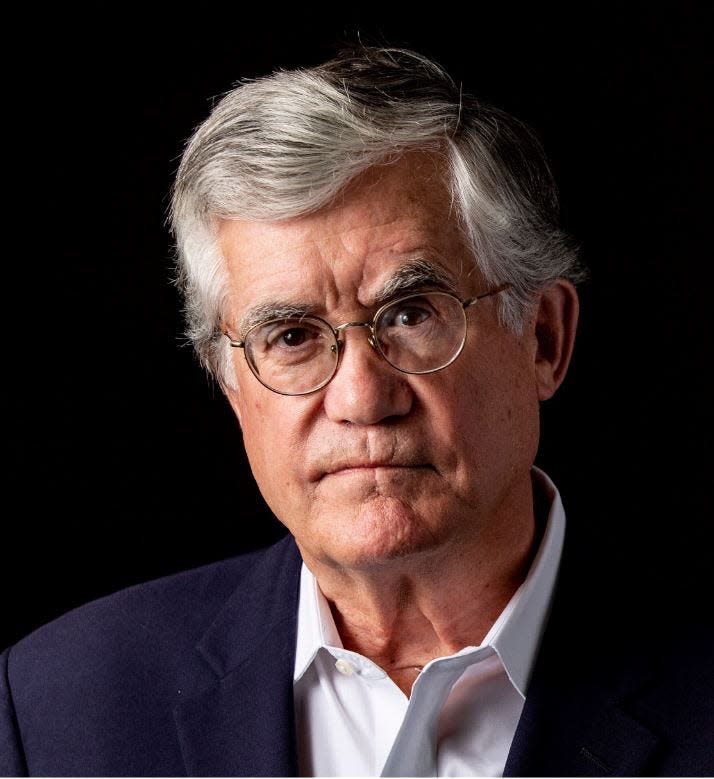Broderick: Supreme Court of the United States is quickly losing its moral authority
It’s painful to think and even harder to say but it’s no less true. The Supreme Court of the United States doesn’t seem as “supreme” as it once did. Ideology, questionable ethics, the intrusion of politics, tortured rationales, hypocrisy and miscues have taken their toll. The signs are hard to miss or explain away. They’re everywhere.
Over my lifetime, I have always respected our Supreme Court and the justices who served there, even when I didn’t agree with a particular decision. The court’s powerful and essential role in American life and its moral and constitutional authority to protect our democracy and our people from unlawful infringement captured and sustained my respect from my earliest memories. It has always represented to me America’s best hope to try to fulfill its essential promises with honor, fairness, consistency, decency, and integrity. I was quite content to have the Supreme Court be the “last word” when a thoughtful, reasoned and impartial last word was needed. But to be honest, I’m not so sure how I feel anymore.

Our Supreme Court, once respected, if not revered, by most Americans has set itself on fire. Its decisions now too frequently smack of partisan politics, moral bromides, ad hominem attacks, unbecoming predictability, ideology, intellectual smugness and rigidity. It has become an amalgam of personalities some of whom feel emboldened to speak their mind before special interest groups and in ways inappropriate for any appointed judge.
To make matters worse, the Supreme Court is decidedly ungoverned by any code of ethics we can follow or enforce and seems responsive only to its own views of right and wrong. It has resisted all public efforts to have it adopt the same or similar code of ethics that governs the conduct of every other federal judge in America and provide a mechanism to enforce it. Nowhere else in government is that level of arrogance tolerated nor should it be. Elected and appointed judges are public servants and they need to be ethically accountable as they exercise their public trust.
The Supreme Court seems tone deaf to the mischief it has made. Remember the leaked Dobbs decision that preceded by a few months the actual release of that enormously consequential decision overturning constitutional rights recognized for almost 50 years? The chief justice had an internal investigation conducted to determine what happened to allow this historic lapse but unfortunately what was ultimately found and who was at fault was never disclosed. None of our business? We deserved better. Transparency matters.
At least one member of the court we recently learned has accepted lavish travel, family home purchases, and family school tuition payments from interested third-party billionaires whom he passes off as “dear friends.” Others have been less than diligent in completing their financial disclosure forms.
Does anyone really believe that if Justice Clarence Thomas was not on the Supreme Court any of his newfound “friends” with strongly held ideological and political views would be underwriting parts of his life? I wonder if their friendship might be more reasonably explained by his high station and his potent vote to reconfigure American life that attracts their largesse? Even if none of that “generosity” influenced his rulings, it should never have happened. Appearances matter and at the U.S. Supreme Court they matter most. Or should.
Justices, of late, fail to recuse themselves from cases where the need for them to do so seems obvious. How can Justice Thomas sit on the Jan. 6 immunity appeal when the facts of the underlying indictment reveal that his wife was writing e-mails to the president’s chief of staff supporting the steal on the very day of the insurrection? Or Justice Samuel Alito sitting on that same immunity appeal having hung an American flag upside down on his flagpole in this political climate — or any political climate for that matter. I was taught to honor the flag. I’ll bet you were, too. It signifies more than a dispute with your neighbor. It’s disturbing.
The Supreme Court is quickly losing its moral authority. The polls prove it. For me, it’s not about agreeing or disagreeing with the wisdom of any decision but with the questionable motives now at play in crafting them and the seeming indifference displayed when it comes to ethics, transparency and general integrity. In the administration of justice perception is reality. At the Supreme Court perception needs to be the coin of the realm. Reality does, too. Nothing less will suffice. Or shouldn’t.
Something is wrong. This is not the Supreme Court I remember. This is not what I grew up respecting. If our highest court continues to slip away from its anchor and succeeds in eroding public trust and confidence, we will have lost the only respected, independent referee democracy has to protect our liberties and ensure our equalities. If we accept the current state of affairs, we will guarantee it. The legal profession needs to step up and speak up as does every citizen who cares about the country our kids will inherit.
John T. Broderick Jr. is a former chief justice of the New Hampshire Supreme Court.
This article originally appeared on Portsmouth Herald: Broderick: Supreme Court of the United States doesn’t seem so supreme

